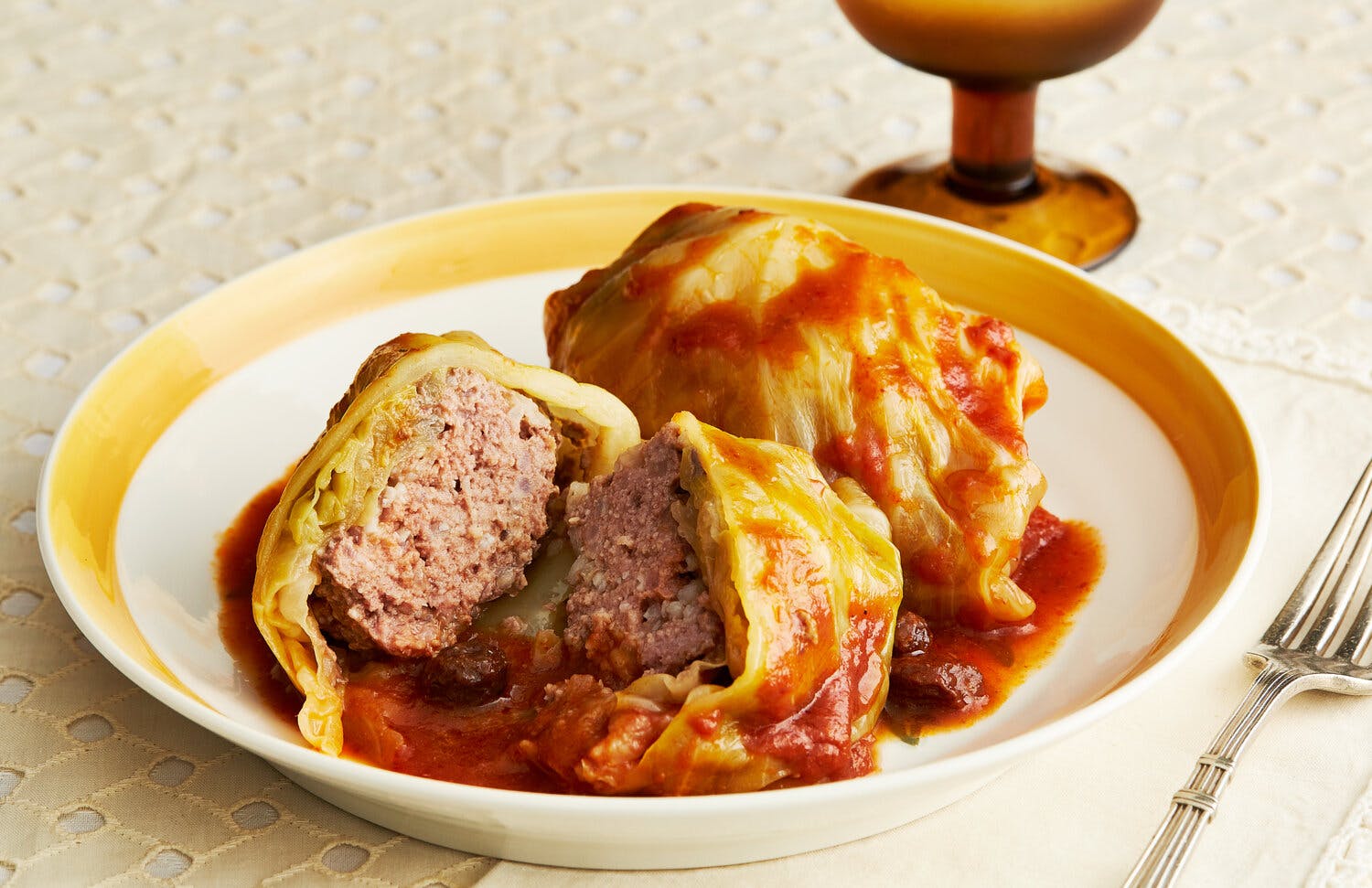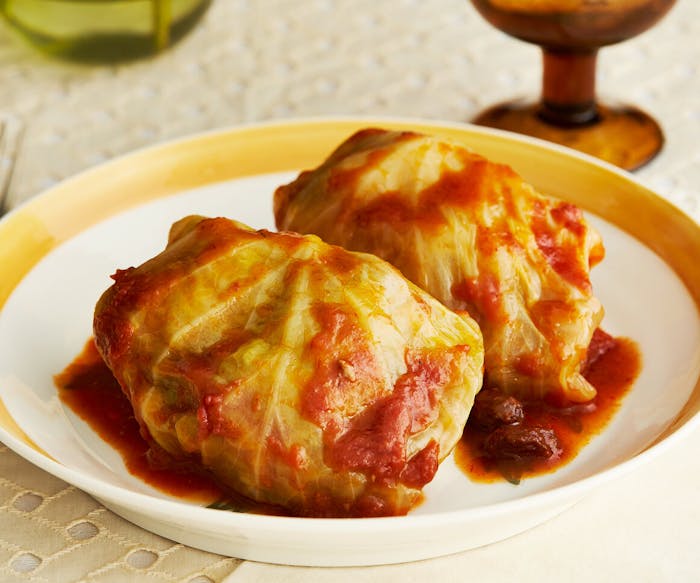Shared by Tamar Raskas Benovitz
On Sukkot, a Great-Grandmother’s Stuffed Cabbage Helps Seal One’s Fate
On Sukkot, a Great-Grandmother’s Stuffed Cabbage Helps Seal One’s Fate
Family Journey
“We always had a sukkah,” says Tamar Raskas Benovitz who grew up in a small Orthodox community in St. Louis. “There were years when it was freezing and we were outside in our winter coats and then there were those weird years and you got an untimely heatwave…. It was always unpredictable, but stuffed cabbage was a given.”
Serving stuffed foods, which symbolize the abundance of the harvest holiday, is a custom shared across many Jewish communities. In Tamar’s family, the sealing of the stuffed cabbage leaves also nods to the idea of one’s fate for the year ahead being sealed on Shemini Atzeret, the day that follows Sukkot.
The recipe, made with ground meat and rice, tucked into leaves of cabbage and cooked in a tomato sauce with brown sugar and raisins, came from her great-grandmother Rebecca, who emigrated from Poland to New York in the early 1900s. Tamar’s other side of the family also made stuffed cabbage, but Rebecca’s version, she says, was “what stuffed cabbage was meant to taste like.”
Rebecca passed down her recipe when her son married. “When my grandmother married my grandfather, she really didn’t know how to cook and [Rebecca] taught her everything,” says Tamar. She remembers her grandmother Francine making the stuffed cabbage when she would visit her in New York.
“It was a food that you cooked with love and to show your family that you cared for them — and to celebrate”
Tamar’s mother was the one responsible for the recipe at Sukkot meals, serving it alongside recipes like butternut squash soup that the family borrowed from American Thanksgiving and fall traditions. Over the years, “The Sukkot meal for my family morphed into an almost harvest type pre-Thanksgiving meal,” says Tamar. “It was a synthesis of our American and Jewishness.”
Ten years ago, Tamar and her husband moved with their five daughters to Jerusalem where they celebrate the holiday with dishes like rack of lamb with pomegranate seeds, chicken with dried fruit, a pumpkin soup and of course the stuffed cabbage is always on the table in the sukkah. “I never skip it,” she says.


